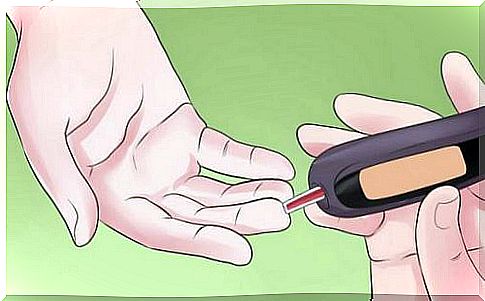Prediabetes: 5 Important Keys To Know
Just like with diabetes, prediabetes does not present clear symptoms, and it is therefore necessary to undergo regular check-ups to be able to detect it as early as possible possible.

Having prediabetes means your blood glucose levels are higher than normal. But that they are not high enough to diagnose true diabetes in these patients.
We have all heard of or know about type 2 diabetes. It is a serious disease that many consider to be a global epidemic.
It is a disease where the body loses its ability to control sugar levels and where the symptoms often take a long time to give clear leads on the disease itself.
This is where the expertise of doctors is essential. They are the ones who must keep abreast of all these risk indicators that more or less predispose us to this disease.
So, if your doctor has diagnosed you with prediabetes, there is a risk of developing type 2 diabetes. As well as developing heart problems and having a higher risk of strokes.
It is therefore not to be taken lightly. It is a serious reality that it is necessary to know and to control.
Excess sugar in the blood is a very serious problem
You may have been told that you have prediabetes. Does this mean that you have a 100% risk of developing diabetes?
The answer is no. There is a risk, but not a direct correlation. This means, above all, that it is necessary to take measures, to follow the medical rules and to submit to periodic checks.
However, the problem is that, in general, neither prediabetes nor diabetes shows obvious symptoms, while their effects can be very serious if the diagnosis is not given on time.
- Diabetes increases the risk of developing arterial blockages which can lead to strokes and heart attacks.
- The high blood sugar levels also cause damage to the nerves, pain in the legs and numbness.
- The very small blood vessels in the retina can also be affected: one can suffer from blindness in particular.
- We must not forget either the kidneys, very sensitive to the damage caused by the high levels of sugar in the blood, to the point of suffering from kidney failure.
- In addition, high blood sugar levels impair the function of white blood cells, so that the immune system is weakened and the susceptibility to infections is increased.
Who is at higher risk for prediabetes?
- People with a family history of diabetes.
- Overweight patients.
- People over 45 who eat an unhealthy diet.
- Women who have suffered from diabetes during pregnancy.
- People who have abdominal fat.
- Sedentary people.
- Women who suffer from polycystic ovaries.
What are the symptoms of prediabetes?
As we pointed out previously, one of the problems with diabetes and prediabetes is that the symptoms are difficult to determine early on.
It is the doctors who, depending on the medical history of each patient, must carry out regular checks to know the levels of sugar in the blood, which may herald prediabetes.
However, you should be careful with these types of symptoms:
- Constant infections
- Be very thirsty
- Tiredness
- Increased urination
As can be seen, these are diffuse and very general symptoms. These are not serious facts that interfere with our daily lives, and that is why we usually do not pay attention to them.
The most important thing is to never forget the regular check-ups.
What tests should be performed to detect prediabetes?
- Fasting Glucose: This is the most common test. It is based on a simple blood test, through which we measure our glucose levels after a fast of at least 8 hours.
If these levels are between 100 and 125 milligrams per deciliter (mg / dl), it is considered that there is prediabetes. - The other test is based on glucose tolerance. In this case, you have to drink a drink that contains glucose and two hours later, do another blood test to see how the body assimilates and processes this sugar.
If the glucose level is between 140 mg / dl and 200 mg / dl, it is also prediabetes.
How to prevent prediabetes?

If we change our lifestyle and follow the advice of our doctors, we can significantly prevent or delay the onset of diabetes.
To achieve this, the following changes must be put into practice:
- Base your diet on the Mediterranean diet: vegetable oils, dried fruits, dried vegetables, fresh fruits …
- Take care of your weight.
- Do moderate exercise.
- Increase your intake of vitamin D.
In conclusion, you can prevent the advance of prediabetes and later the development of diabetes. So now is the time to start taking better care of yourself.









